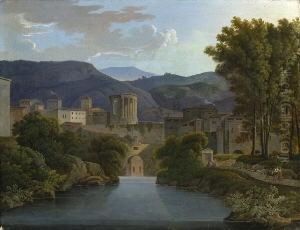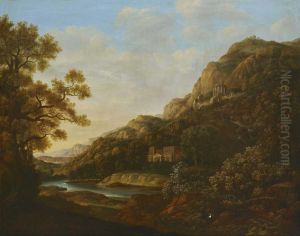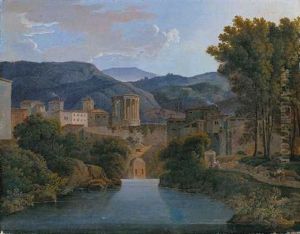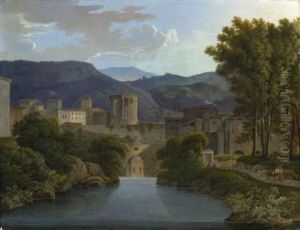Johann Christian Eberlein Paintings
Johann Christian Eberlein was a notable figure in the realm of porcelain manufacturing during the 18th century, especially known for his contributions to the Meissen Porcelain Manufactory in Germany. Born in 1696, Eberlein's journey into the world of art and craftsmanship began in an era when European porcelain was in its infancy, and the quest to discover the secret of making true or hard-paste porcelain had just culminated successfully in Meissen, a town in Saxony. This period marked the dawn of a new era in European ceramics, with Meissen leading the way, thanks in part to the talents and innovations of artisans like Eberlein.
Eberlein's work at the Meissen Porcelain Manufactory, where he started in the early 1720s, spanned several decades during which he developed a reputation as a skilled modeler and designer. He was deeply involved in creating and designing porcelain figures, tableware, and decorative items that reflected the Baroque and Rococo tastes of the time. His designs often featured intricate details, elaborate scenes, and a delicate interplay of forms that were characteristic of the period's aesthetic preferences.
During his tenure at Meissen, Eberlein collaborated with other renowned artists and craftsmen, contributing to the manufactory's reputation as the leading porcelain producer in Europe. His ability to blend artistic creativity with the technical demands of porcelain production helped elevate the medium to new heights of artistic expression. Eberlein's work is representative of the early stages of European porcelain art, where the influence of Asian ceramics was still palpable, yet a distinct European identity was beginning to emerge.
Johann Christian Eberlein's contributions to the field of porcelain art were significant not just for their aesthetic value but also for their role in establishing Meissen porcelain as a luxury item sought after by the European elite. His legacy is preserved in museums and collections worldwide, where his pieces continue to be admired for their beauty and craftsmanship. Eberlein passed away in 1762, leaving behind a body of work that remains influential in the study and appreciation of European porcelain art.



